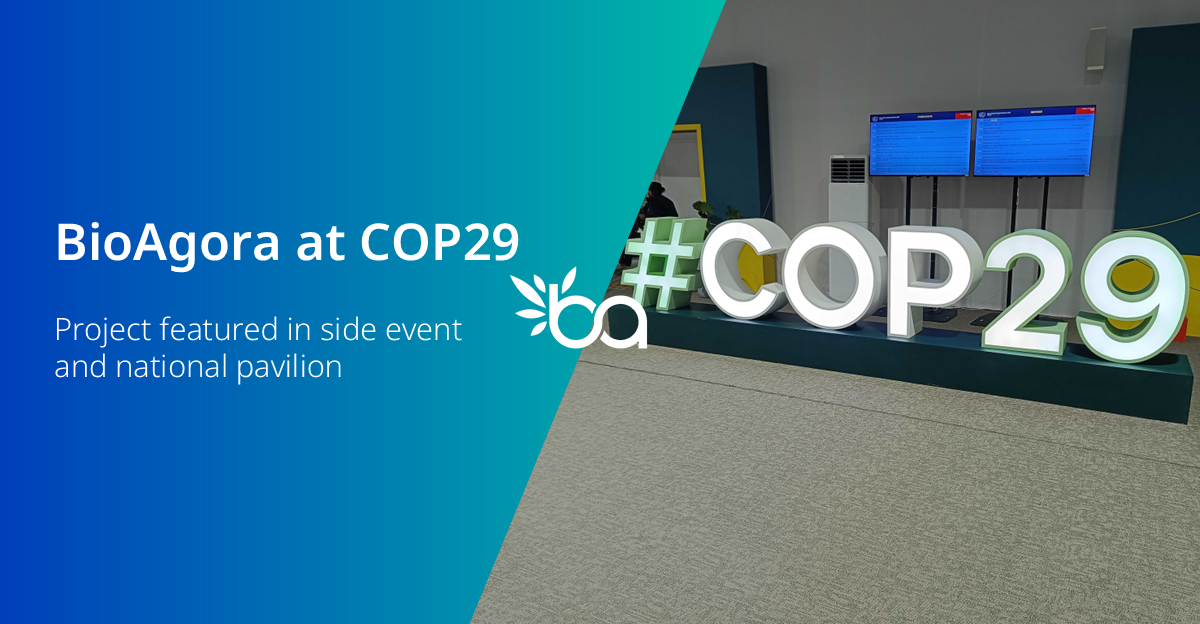The BioAgora project made a notable appearance at the 29th Conference of the Parties (COP29), presenting its innovative approaches to strengthening the biodiversity science-policy interface. As part of the Nature and Biodiversity Thematic Day on 21 November, WP5 partners from Pensoft hosted a dynamic side event at the Bulgarian pavilion, titled “Supporting Climate and Biodiversity Policy Through Open Science and Science Communication”.
The event focused on two critical themes: open science for nature restoration and climate change mitigation and the role of communication in supporting the science-policy interface.
The discussion about open science emphasized how open science accelerates scalable solutions for climate adaptation and ecosystem restoration. This topic is highly relevant to BioAgora efforts in the field of Open Science. The session on communication highlighted the pivotal role of effective science communication in bridging the gap between research and policymaking. By promoting informed decision-making and evidence-based actions, science communication drives sustainability and conservation efforts.
BioAgora was presented during the session on science communication, where the project’s objectives and its contribution to enhancing the EU biodiversity science-policy interface were outlined. This presentation captured the attention of a diverse audience, including stakeholders from the USA, Bulgaria, Bangladesh, and the EU. EU ambassadors attending COP29 that visited the Bulgarian pavilion were introduced to the project’s objectives and activities, amplifying BioAgora’s impact.
With over 75,000 participants at COP29, BioAgora achieved significant exposure, directly reaching more than 1,000 attendees through the event and associated promotional networking activities. A collaboration with the EU Pavilion on social media further expanded its reach. Stakeholders from policy, research, activist, and expert organizations, as well as national representatives, expressed strong interest in the project. BioAgora promotional materials were distributed, sparking conversations about its potential to drive transformative change in the field of the science-policy interface through creating a fair and functional Science Service for Biodiversity.
